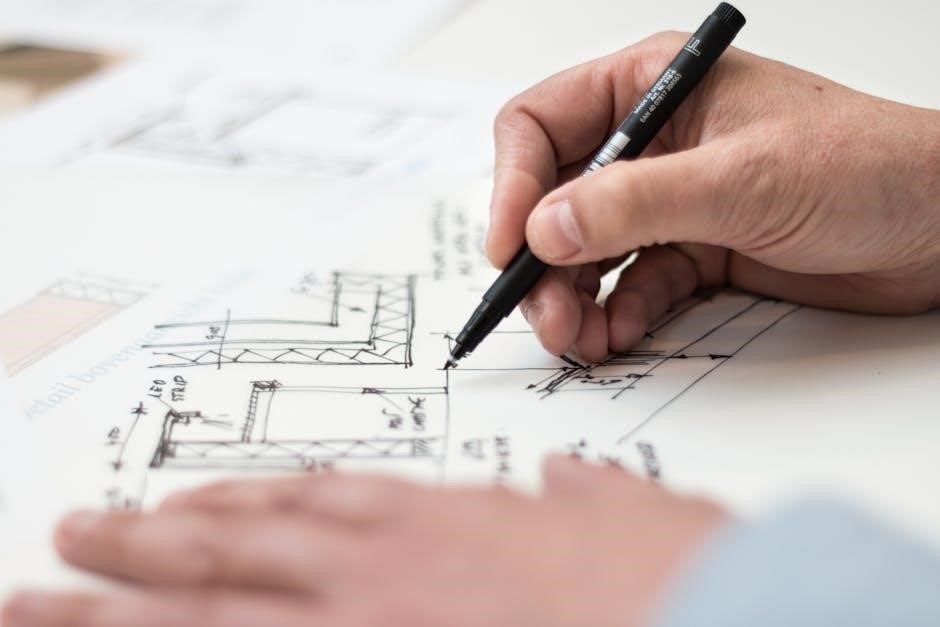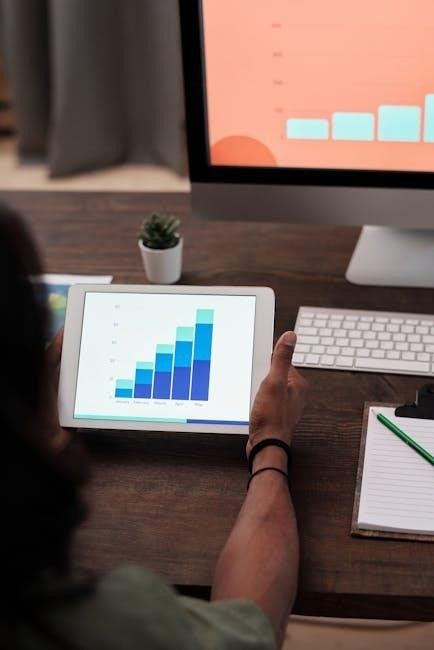Elechomes Humidifier Manual: A Comprehensive Guide
Elechomes humidifiers enhance indoor comfort, addressing dry air issues with models like the HTJ-2119 and SH8820, offering features for optimal home humidity.
Elechomes has rapidly become a recognized name in home comfort, specializing in air treatment solutions, particularly humidifiers. These devices are designed to combat the effects of dry air, offering relief from irritated skin, dry throats, and other discomforts.
Their range includes ultrasonic and warm/cool mist humidifiers, catering to diverse preferences and needs. Elechomes models, such as the popular HTJ-2119, SH8820, and UC5501, integrate features like built-in humidity sensors and aroma pads for a personalized experience.
This guide provides a comprehensive overview of Elechomes humidifiers, covering setup, operation, maintenance, and troubleshooting to ensure optimal performance and longevity.
Understanding Humidity and its Benefits
Humidity, the amount of moisture in the air, significantly impacts our health and well-being. Low humidity levels, common during winter months or in arid climates, can lead to dry skin, irritated sinuses, and increased susceptibility to colds and flu. Maintaining optimal humidity—typically between 30-50%—is crucial for comfort.
Elechomes humidifiers address this by adding moisture back into the air. Benefits include alleviated dry throat symptoms, reduced static electricity, and even improved plant health. Proper humidity levels can also protect wooden furniture and flooring from cracking.
Understanding these benefits highlights the value of investing in a quality humidifier like those offered by Elechomes.

Elechomes Humidifier Models: Overview
Elechomes offers diverse humidifier models, including the HTJ-2119, SH8820, and UC5501, featuring ultrasonic technology and various mist options for tailored comfort.
Popular Elechomes Humidifier Models (HTJ-2119, SH8820, UC5501)
Elechomes boasts several popular models catering to diverse needs. The HTJ-2119 Ultrasonic Humidifier stands out with its built-in humidity sensor and aroma pad functionality, allowing for personalized comfort. The SH8820, a 5.5L top-fill humidifier, is ideal for larger rooms, though some users report potential unit faults requiring replacement.
Meanwhile, the UC5501 model provides effective humidification, often available through online retailers like eBay and Amazon. These Elechomes humidifiers aim to alleviate dry skin and coughing, enhancing indoor air quality. Each model offers unique features, from remote controls to 360-degree nozzles, ensuring a comfortable home environment.
Warm vs. Cool Mist Humidifiers: Which is Right for You?
Elechomes offers both warm and cool mist humidifiers, each with distinct advantages. Cool mist humidifiers, like many Elechomes models, are generally safer for households with children and pets, avoiding scalding risks. They’re also energy-efficient and can provide a refreshing sensation.
Warm mist humidifiers, conversely, can offer a soothing effect, potentially easing congestion. The Elechomes Warm and Cool Mist Humidifier provides versatility, allowing users to switch between modes. Consider your personal preference and specific needs – dry throats benefit from warm mist, while general humidity boosts suit cool mist.

Setting Up Your Elechomes Humidifier
Elechomes humidifier setup involves unboxing components, filling with water, and powering on for basic operation, ensuring proper placement for optimal humidity distribution.
Unboxing and Component Identification
Upon receiving your Elechomes humidifier, carefully open the packaging and verify all components are present. Typically, you should find the humidifier base, a water tank (often removable for easy filling), and potentially a cleaning brush.
Some models, like the SH8820, include a remote control. Inspect for the aroma pad if your model supports aromatherapy. Refer to the included quick start guide or full manual to confirm all parts are accounted for.
Familiarize yourself with the location of the spray nozzle and any included accessories before proceeding to the initial setup. Retain the packaging for potential warranty claims or returns.
Initial Setup and Water Filling Instructions
Before first use, place your Elechomes humidifier on a stable, level surface. Remove the water tank and rinse it thoroughly with clean water. Fill the tank with cool, distilled or purified water – avoid tap water to minimize mineral buildup.
Ensure the water level does not exceed the maximum fill line indicated inside the tank. Carefully reattach the tank to the humidifier base, ensuring a secure fit. Some models feature a top-fill design for convenient refilling.
Wipe away any spilled water before powering on the device to prevent potential damage.
Powering On and Basic Operation
To power on your Elechomes humidifier, plug the power adapter into a standard electrical outlet. Locate the power button – typically indicated by a universal power symbol – and press it. The humidifier will initiate its operation, often with a default mist level.
Use the control panel to adjust the mist output, selecting from low, medium, or high settings. Many models include a timer function, allowing you to set a desired runtime. Explore the available modes, such as continuous or intermittent operation.
Observe the indicator lights to confirm the humidifier is functioning correctly.

Advanced Features and Controls
Elechomes humidifiers boast features like humidity sensors, aroma pads, adjustable mist levels, and spray nozzles for personalized comfort and enhanced air quality.
Using the Humidity Sensor
Elechomes humidifiers, particularly the HTJ-2119 model, often include a built-in humidity sensor for precise environmental monitoring. This sensor continuously measures the ambient humidity level within the room, providing real-time data to the user.
The sensor allows for automatic mode operation, where the humidifier adjusts its output to maintain a pre-set humidity level, typically between 40% and 60%. Users can often view the current humidity reading directly on the humidifier’s display.
Accurate humidity control prevents over-humidification, which can lead to mold growth, and ensures optimal comfort by alleviating dryness. Regularly checking and understanding the humidity sensor’s readings is key to maximizing the benefits of your Elechomes humidifier.
Aroma Pad Functionality
Many Elechomes humidifiers feature an integrated aroma pad, allowing users to diffuse essential oils for aromatherapy benefits. This pad, typically located within the humidifier’s base, absorbs a few drops of your preferred oil, releasing a subtle fragrance into the air alongside the humidified mist.
To utilize this feature, simply add a small amount of essential oil to the pad – avoid over-saturating it. The aroma pad enhances the humidifier’s functionality, creating a more relaxing and pleasant atmosphere.
Ensure compatibility with your humidifier model and always use pure essential oils to prevent damage or residue buildup. Regularly check and replace the pad as needed for optimal performance.
Adjusting Mist Levels and Spray Nozzles
Elechomes humidifiers offer adjustable mist levels, allowing you to customize the output based on room size and personal preference. Control panels or remote controls typically feature settings for low, medium, and high mist intensity. Experiment to find the optimal level for your comfort.
Many models also include 360-degree rotatable spray nozzles, directing the mist precisely where needed. This feature ensures even distribution throughout the room, preventing localized humidity. Adjust the nozzle angle to avoid directly misting furniture or walls.
Proper adjustment of these settings maximizes efficiency and prevents over-humidification.

Maintenance and Cleaning
Regular cleaning and descaling are crucial for maintaining optimal performance and preventing bacterial growth within your Elechomes humidifier.
Regular Cleaning Schedule
To ensure your Elechomes humidifier operates efficiently and hygienically, establish a consistent cleaning routine. Daily, empty and rinse the water tank to prevent mineral buildup and bacterial growth. Every three to five days, thoroughly clean the tank with a mild detergent and water, rinsing completely to remove any residue.
Weekly, disinfect the tank using a diluted bleach solution (follow manufacturer’s instructions carefully) or a commercial humidifier cleaning solution. Pay attention to the mist outlet and other components, wiping them down to remove dust and debris. Consistent cleaning extends the humidifier’s lifespan and maintains air quality.
Descaling Procedures
Mineral buildup, or scale, can reduce your Elechomes humidifier’s performance. Descale every 1-2 months, depending on water hardness. First, unplug the humidifier. Then, prepare a descaling solution – equal parts white vinegar and water is effective. Pour the solution into the water tank and let it sit for 30-60 minutes, allowing it to dissolve the mineral deposits.
After soaking, empty the tank and rinse thoroughly with clean water multiple times until the vinegar smell is gone. For stubborn scale, repeat the process. Regular descaling maintains optimal mist output and prolongs the humidifier’s life.
Filter Replacement (if applicable)
Not all Elechomes humidifiers utilize filters; check your specific model’s documentation. If your humidifier includes a filter, replacement is crucial for maintaining air quality and optimal performance. Typically, filters should be replaced every 3-6 months, depending on usage and water quality. A clogged filter reduces mist output and can harbor bacteria.
To replace, unplug the humidifier and locate the filter access panel. Remove the old filter and insert the new one, ensuring a secure fit. Refer to your model’s manual for detailed instructions. Regularly replacing the filter ensures clean, healthy mist.

Troubleshooting Common Issues
Elechomes humidifier problems like no power, low mist, or strange noises are often easily resolved by checking connections, cleaning, or descaling the unit.
Humidifier Not Turning On
If your Elechomes humidifier fails to power on, begin by verifying the power cord is securely plugged into both the unit and a functioning electrical outlet. Confirm the outlet is receiving power by testing it with another device.
Next, check the internal water tank; some models feature a safety shut-off that prevents operation without sufficient water. Ensure the tank is properly seated and filled to the minimum level.
Inspect the power adapter for any visible damage. If issues persist, consult the user manual for specific troubleshooting steps related to your Elechomes model.
Low Mist Output
Experiencing reduced mist output from your Elechomes humidifier? First, ensure the water tank is filled adequately, as low water levels can restrict mist production. Verify the spray nozzle isn’t obstructed by mineral buildup or debris; cleaning may be necessary.
Check the fan speed setting – a lower setting results in less mist. Confirm the humidity sensor isn’t reporting a saturated environment, which could trigger automatic mist reduction.
Regular descaling, as outlined in the manual, prevents mineral deposits from hindering performance. If problems continue, review your model’s specific troubleshooting guide.
Strange Noises During Operation
Hearing unusual sounds from your Elechomes humidifier? A common cause is an uneven surface causing vibration; ensure the unit is placed on a stable, level floor. Check for obstructions within the water tank or near the fan, as these can create rattling or buzzing noises.
Low water levels can also lead to gurgling sounds. Regularly cleaning the humidifier, particularly descaling, prevents mineral buildup that contributes to noise. If the sound persists, consult the manual for model-specific troubleshooting steps.

Safety Precautions
Prioritize electrical safety and water quality when using your Elechomes humidifier; proper storage is also crucial for longevity and safe operation.
Electrical Safety Guidelines
Always ensure the Elechomes humidifier is plugged into a grounded outlet, matching the voltage specified on the unit’s label. Never operate the humidifier with a damaged cord or plug; immediately discontinue use and contact customer support. Avoid using extension cords, as they can pose a fire hazard.
Keep the humidifier away from water sources and prevent liquids from entering the unit to avoid electric shock. Do not attempt to disassemble or repair the humidifier yourself; qualified personnel should handle any repairs. Unplug the humidifier before cleaning or filling with water. Regularly inspect the power cord for damage, and replace if necessary.
Water Quality Recommendations
Utilize distilled or demineralized water in your Elechomes humidifier to minimize mineral buildup and prolong the unit’s lifespan. Tap water often contains minerals that can create white dust and affect performance, requiring more frequent cleaning. Avoid using water treated with softeners, as they can also leave residue.
Regularly change the water, even if not fully depleted, to prevent bacterial growth. Do not add any essential oils or other additives directly into the water tank unless the model specifically supports an aroma pad feature; Following these guidelines ensures optimal humidifier function and air quality.
Proper Storage Instructions
Before storing your Elechomes humidifier for extended periods, thoroughly clean and dry all components, including the water tank and mist nozzle, to prevent mold and bacterial growth. Ensure the unit is completely dry before packing it away in a cool, dry place, away from direct sunlight.
Store the humidifier in its original packaging if possible, or use a protective cover. Periodically check the stored unit for any signs of damage or moisture. Proper storage extends the humidifier’s lifespan and ensures it’s ready for use when needed.

Elechomes Humidifiers and Houseplants
Elechomes humidifiers create optimal humidity levels, benefiting houseplants that thrive in moist environments, unlike cacti and succulents, enhancing their growth and vibrancy.
Creating Optimal Humidity for Indoor Plants
Elechomes humidifiers are invaluable for indoor plant enthusiasts, as most houseplants flourish in environments with higher humidity than typically found in homes. Maintaining the correct moisture level is crucial for healthy growth, vibrant foliage, and preventing issues like brown leaf tips.
Utilizing an Elechomes humidifier allows you to replicate the tropical conditions many popular houseplants require. Different plant species have varying humidity preferences, but generally, a humidity level between 40% and 60% is ideal. Regularly monitoring humidity levels with the humidifier’s built-in sensor (if equipped) ensures your plants receive the consistent moisture they need to thrive, creating a lush and vibrant indoor oasis.

Where to Find Elechomes Humidifier Manuals
Elechomes manuals are readily available on their official website, as well as through online retailers like eBay and Amazon, offering easy access to support.
Official Elechomes Website
Elechomes’ official website serves as the primary and most reliable source for accessing comprehensive humidifier manuals. Navigating to their support or downloads section typically allows users to search for specific model numbers – such as the HTJ-2119, SH8820, or UC5501 – to locate the corresponding PDF manual.
These manuals, often available in multiple languages, provide detailed instructions on setup, operation, maintenance, and troubleshooting. The website also frequently offers FAQs and additional resources to assist users. Downloading directly from Elechomes ensures you have the latest version of the manual, reflecting any updates or revisions to the product or its features. It’s a direct line to the manufacturer’s official guidance.
Online Retailer Resources (eBay, Amazon)
Elechomes humidifier manuals can often be found through major online retailers like eBay and Amazon, though availability varies. Product listings frequently include links to downloadable manuals in the “Product Information” or “Help” sections.
However, these versions may not always be the most current. Users should verify the model number matches their humidifier and compare the manual’s revision date with that on the official Elechomes website. Customer review sections sometimes contain links shared by other users. While convenient, exercise caution and prioritize the official source for the most accurate and up-to-date guidance on operation and safety.

Warranty Information
Elechomes offers warranties on their humidifiers; understanding the terms is crucial. Check your purchase documentation for specific coverage details and claim procedures.
Understanding Your Elechomes Warranty
Elechomes warranties typically cover defects in materials and workmanship for a specified period, often one year from the date of purchase. It’s vital to retain your proof of purchase, as this is usually required to make a claim.
The warranty doesn’t cover damage resulting from misuse, accidents, unauthorized repairs, or normal wear and tear. Carefully review the warranty documentation included with your humidifier to understand the specific terms and conditions.
To initiate a warranty claim, contact Elechomes customer support, providing your model number and purchase details. They will guide you through the process, which may involve returning the unit for inspection or repair.


























































































